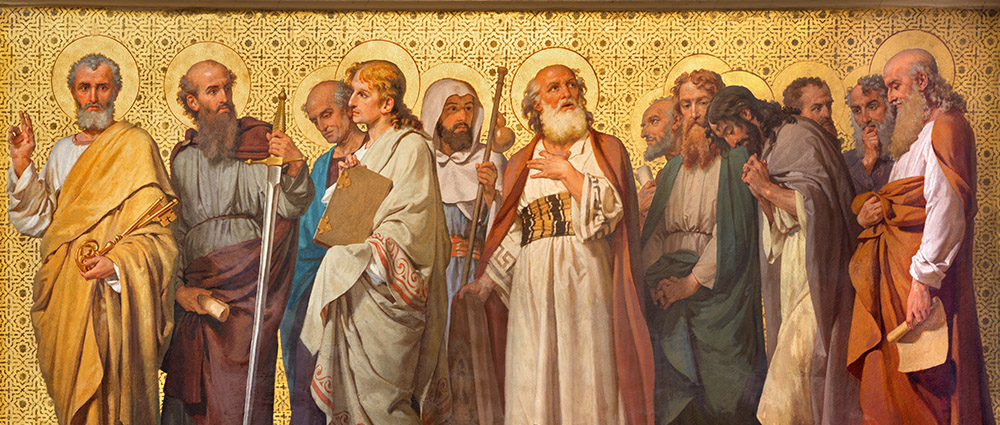While it is true that the original Twelve Apostles were unique in that they had been personally chosen by Jesus and had witnessed to the Resurrection, the Catholic Church believes that the ministry of Peter and the apostles continues in the Church, and that therefore the apostolic and Petrine ministries have been transmitted through the ages.
The Second Vatican Council’s Dogmatic Constitution on the Church (Lumen Gentium) states: “In order that the mission entrusted to [the apostles] might be continued after their death, [the apostles] consigned, by will and testament, as it were, to their immediate collaborators the duty of completing and consolidating the work they had begun, urging them to tend to the whole flock, in which the Holy Spirit had appointed them to shepherd the whole Church of God. They accordingly designated such men and then made the ruling that likewise on their death other proven men should take over their ministry” (No. 20).
The document continues: “Just as the office which the Lord confided to Peter alone, as first of the apostles, destined to be transmitted to his successors, is a permanent one, so also endures the office, which the apostles received, of shepherding the Church, a charge destined to be exercised without interruption by the sacred order of bishops” (Ibid.) Therefore the Church holds that “the bishops have by divine institution taken the place of the apostles as pastors of the Church” (Ibid). It reiterates this point by saying that when Christ called the Twelve, “he constituted [them] in the form of a college or permanent assembly, at the head of which he placed Peter, chosen from among them” (No. 22). Thus, “By the Lord’s institution, St. Peter and the rest of the apostles constituted a single apostolic college, so in like fashion the Roman Pontiff, Peter’s successor, and the bishops, the successors of the apostles, are related with and united to one another” (No. 22).
It is certainly the case that the relationships between the Twelve Apostles and their successors, and the relationship between Peter and subsequent popes, was in the beginning quite complicated; nevertheless the fundamental lines of Catholic doctrine on this matter are clear: The apostolic ministry continues in the Church through a succession of bishops up to the present time, and the ministry of Peter continues in the papacy down to today.
While it is true that the original Twelve were personally chosen by Jesus and encountered the resurrected Christ, nevertheless Christ, who lives in the Church by the power of the Holy Spirit, continues to call men personally to the Petrine and episcopal ministries, and that in the Eucharist, they encounter Christ risen from the dead.
As the Catechism of the Catholic Church points out, the whole Church constitutes an apostolic community, so that the ministry of Christ continues: “The whole Church is apostolic, in that she remains, through the successor of St. Peter and the other apostles, in communion of faith and life with her origin; and that she is sent out into the whole world” (No. 863).

